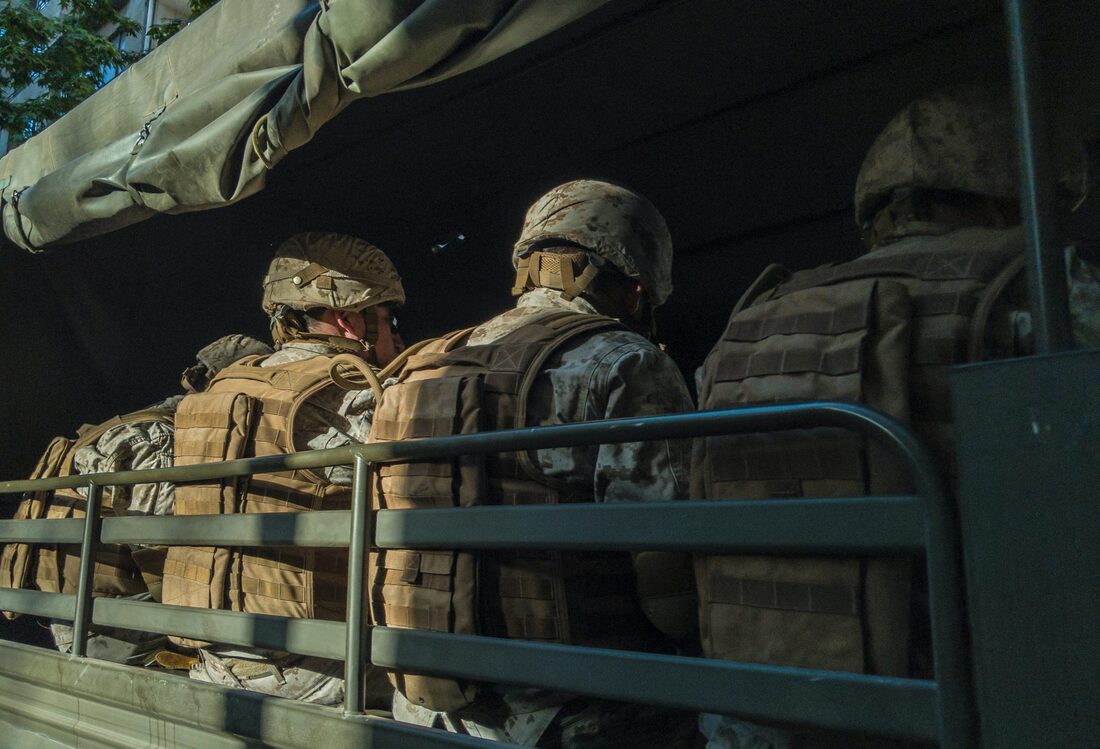|
*This article was originally published by For The Church and can be accessed here. Jesus conducted his earthly ministry in Aramaic, yet the New Testament was not written in Aramaic, nor Hebrew, but in the language of the people – it was written in Greek. This language, which was the langue franca of the Roman Empire, was a language that transcended multiple nations, people groups and, in part, allowed for the early proliferation of the gospel and the spread of Christianity in the early church. This happened because the very pages of scripture carry with it the presupposition that the message of the gospel was and is meant to be translated.
The military can be thought of akin to an under-reached or unengaged people group. It possesses its own sub-cultures, languages, acronyms, rank structures, slang, and even its own system of governance. The sum of these degrees of separation from their civilian counter-parts act as obstacles to traditional church outreach. Where these barriers have been erected as a by-product of a recognizably distinct culture, the military is in dire need for the message of the gospel to be translated into its own domain. The need for this translation work is evident in many facets, but the alarmingly high suicide rate among veterans should create the greatest urgency. Many veterans are dying among us, in our communities and towns, and by their own hand. In this arena, the translation work has been one-sided, depending upon the veteran to come out of their previous context and culture rather than the church doing the work to enter into their environment and story in need of redemption. How can the church orient themselves to reach this large and under-engaged group? Learn the dialect of that person you are reaching The military does not have a singular language, but rather, it is a language family with a host of dialects that pertain to that person’s MOS (military occupational specialty; their job). These are jargon laden and virtually indecipherable to an outsider, even someone in the military but in a different branch. To learn that dialect, you need to enter their story. There is no substitute for time spent in relationships with military personnel. Your curiosity and presence, armed with the translatable message of the gospel, is what will reach someone. Ask better questions Often, to our own discredit, our American culture is enamored with the wrong aspects of military service. Don’t ask, “did you kill anyone? Do you have PTSD? Did you see a lot of action? Did you lose anyone over there?” This barrage of misaimed questions projects a certain image upon our servicemembers. The majority of military personnel are not in combat roles, and even among those that are, does not mean they have necessarily experienced combat. Rather than asking conversation-killing questions, direct your inquires in this fashion: “what’s it like being in the military? What do you like most about it? What’s the best part of your job?” Asking better questions doesn’t merely gather better answers, it wins a second hearing, and a second and third hearing wins you a relationship. Choose better settings Avoid asking any big questions in passing. If you do this, you will likely get a canned response that is cordial but not intended to unpack the question. This is like walking by someone in the hallway who is in the midst of crisis and asking, “how are you?” At best you’re going to receive a curt reply. Instead, aim for long settings. These can encompass conversations spent over meals, an open-ended coffee, and small groups where you can collect a longer and more measured response. The context of your questions will often dictate the depth of response. Go back to the beginning A veteran’s story doesn’t begin with them deploying or leaving active duty. If you start here, you will miss the context and the subsequent meaning of their story. The sum of a veteran’s background includes, at least, seventeen years of growing up in a context prior to enlisting. When we miss these pieces of a person’s life, we can narrowly interpret and the get the wrong impressions of a person’s character. Go farther back to collect a greater context and assemble larger pieces of their background. “Where did you grow up? Why did you join the military? What was it like the first time you went home after joining? What was different? What was the same? How do you relate to your military experience now that you’re out? What would you like to do after you leave the military?” Nurture the relationship Like any other relationship you have in your life, it takes time to build through faithfulness and attentiveness. You will notice the first time you sit and ask to hear a person’s story that clarifying questions will arise, especially for veterans. What does that mean? What does that acronym stand for? How does this relate to this other job? Allow your desire to understand their vocation guide the conversations and help cultivate the relationship. As the relationship builds, so will your vocabulary of what was once a foreign language or peculiar dialect. Look for Gospel Bridges The military is replete with borrowed capital from a Christian worldview. The high view of duty, honor, courage, faithfulness, and sacrifice, to name a few, derive their ultimate meaning from the pages of scripture. As you learn that person’s military dialect and build that relationship, the more about their need for Christ will inescapably arise. The more a person borrows capital from the Christian worldview, even if unwittingly, the more their indebtedness to God will be made known. It requires wisdom to know which bridge or on-ramp is best to cross at any given time, but often these on-ramps will prioritize themselves as a person’s brokenness before God is exposed and laid bare. To reach the under-reached sub-cultures of the military requires time spent in relationships with others, with Christ, and time in the Word. Christians can possess a confidence that their message, which been translated hundreds of times across hundreds of languages and cultures, is meant to be translated. This fact can encourage us to stay on task with bringing the only message that saves to minister to our military and veterans.
0 Comments
Leave a Reply. |


